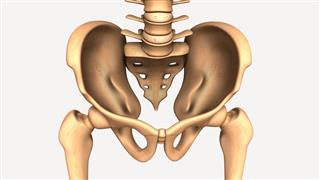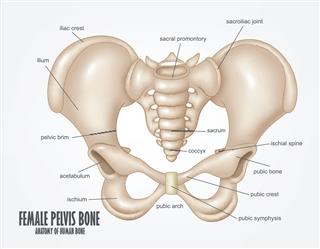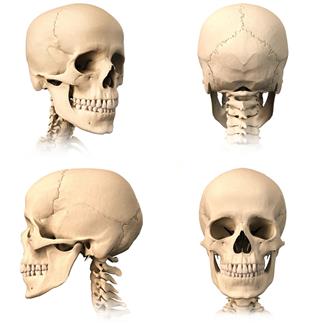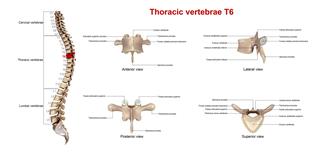
Botany, biophysics, ecology and agriculture are some of the branches of biology and here, we shall take a look at these branches in brief.
The term biology is taken from the Greek word “bios” meaning life and “logos” meaning study. Biology is the science that studies about various living organisms. A living organism could be a one-celled bacteria or a several-celled organism such as an animal or a plant. Biological science is classified into various branches, depending upon the organisms to be studied, and is a vast field.
Branches of Biology
Zoology
This is a branch of biology that studies animals. The term zoology originated from the Greek term “Zoon” meaning animal and “logos” meaning study. Zoology is divided into Applied Zoology, the study of production and non production animals, Systematic Zoology, dealing with evolution and taxonomy or science of naming living things and Organismal Zoology, the study of animals in our biosphere. Applied Zoology is further divided into, Aquaculture, which involves production and maintenance of freshwater and seawater animals and plants, Piggery, which includes study of everything related to pigs, Applied Entomology,which includes manipulation of insects for the benefit of humans, Vermiculture, which is breeding of the worms which burrow soil, for production of natural fertilizers, Poultry Science, the study of domestic birds such as geese, turkey and chicken, Parasitology, dealing with the study of parasites, Radiation Biology, which uses gamma rays, X-rays, electrons and protons for well-being of humans, Biotechnology, which applies engineering principles for the material processing by biological factors, Applied Embryology, which embraces test tube culture (embryo culture) for increasing productivity from cattle, Tissue Culture, involving the culture of plant tissues and cells in an artificial environment, Dairy Science, which deals with milk or milk related products, Pesticide Technology, which is the study of pesticides and their uses, Nematology which deals with study of roundworms of organisms and their control, Ornithology, which is the study of birds, Herpetology, study of reptiles, Ichthyology, which is the study of fish and Mammology, which includes the study of mammals.
Entomology
One of the sub branches is entomology, which is exclusively based on insects. It concentrates on studying the taxonomy, features, adaptations, roles and behavior of insects.
Ethology
Truly speaking, ethology comes under zoology and deals with behavioral adaptations of animals, specially in their natural or original dwelling places.
Anatomy
Applicable to plant anatomy and animal anatomy, it involves studying the detailed structure, internal organs and the respective functions of an organism.
Physiology
Physiology is defined as the study of various functions and processes of living organisms. Physiology is further divided into Evolutionary Physiology, which is the study of physiological evolution, Cell Physiology – the study of cell mechanism and interaction, Developmental Physiology, which involves the study of physiological processes in relation to embryonic evolution, Environmental Physiology, which deals with the study of response of plants to agents such as temperature, radiation and fire and Comparative Physiology, roughly explained as the study of animals except humans.
Genetics
This is considered to be an interesting field of study and is a branch of biology. Genetics is the study of genes. This term is derived from the Greek word “genetikos” meaning “origin”. This branch of biology studies about the hereditary aspects of all living organisms. The study of inheritance of traits from the parent had begun in the mid-nineteenth century and was pioneered by a renowned biologist Gregor Mendel. The modern science of genetics is based upon the foundations laid down by this biologist.
Botany
The study of plant life or phytology is known as botany. One of the most prominent among the different branches of biology, botany is a vast subject and studies the life and development of fungi, algae and plants. Botany also probes into the structure, growth, diseases, chemical and physical properties, metabolism and evolution of the plant species. Botany implies the importance of study of plant life on earth because they generate food, fibers, medicines, fuel and oxygen.
Evolution Biology
As we all know, highly developed organism have evolved from simpler forms. There is a specific branch of biology, called evolution biology that focuses on the evolution of species.
Developmental Biology
As the name signifies, development biology helps a student in learning the various phases of growth and development of a living creature.
Ecology
Ecology is a branch of biology that studies the interaction of various organisms with one another, and their chemical and physical environment. This branch of biology studies environmental problems such as pollution and how it affects the eco-cycle. The term ecology is derived from the Greek term “oikos” meaning “household” and “logos” meaning “study”. A German biologist, Ernst Haeckel, coined the term ecology in 1866.
Cryobiology
This deals with the effects of extremely low temperature in living cells and organisms as a whole.
Biochemistry
This branch of biology studies the chemical processes in all living organisms. Biochemistry is a branch of science that studies the functions of the cellular components such as nucleic acids, lipids, proteins and various other bio-molecules.
Cytology and Molecular Biology
In-depth study about the cell along with its structure, function, parts and abnormalities are all studied under cell biology or cytology. Likewise, study of organisms at the molecular level is called molecular biology.
Marine Biology
Marine biology studies the ecosystem of the oceans, marine animals and plants. There is a vast portion of ocean life that is still unexplored. You can rightly say that marine biology is a branch of oceanography, which is, again, a branch of biology.
Bioinformatics
Bioinformatics basically relates to genomic studies with the application of data processing, computational knowledge and statistical applications.
Mycology
According to modern-day taxonomy, fungi (singular fungus) is neither a plant nor an animal. It belongs to a different living group and is studied under the subject, mycology.
Biophysics
Biophysics involves the study of relation between organisms or living cells and electrical or mechanical energy. Biophysics is further divided into the following sub-branches: Molecular Biophysics, which defines biological functions in relation to dynamic behavior and molecular structure of various living systems such as viruses, Bio mechanics is the study of forces applied by muscles and gravity on the skeleton, Bio electricity – the study of electric currents flowing through muscles and nerves and static voltage of biological cells, Cellular Biophysics, which incorporates study of membrane function and structure, and cellular excitation and Quantum Biophysics, which includes the study of behavior of living matter at molecular and sub molecular level.
Aquatic Biology
It involves study of life in water, like study of various species of animals, plants and micro-organisms. It incorporates the study of both freshwater and sea water organisms. Sometimes, aquatic biology is also referred to as limnology.
Biology as a science gives us the opportunity to make observations, evaluate and solve problems that are related to plants and animals. If you are interested in biology, pursuing a career in any branch of biology can be immensely rewarding.





